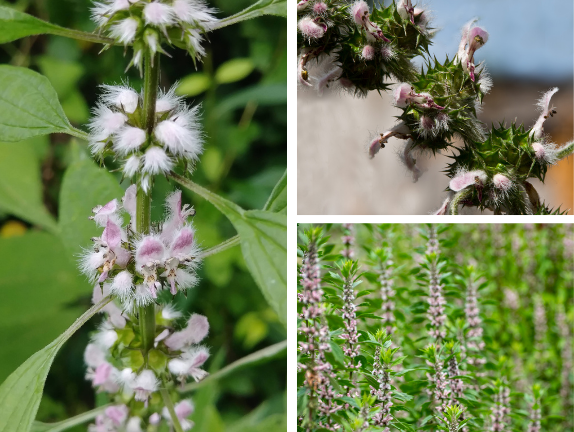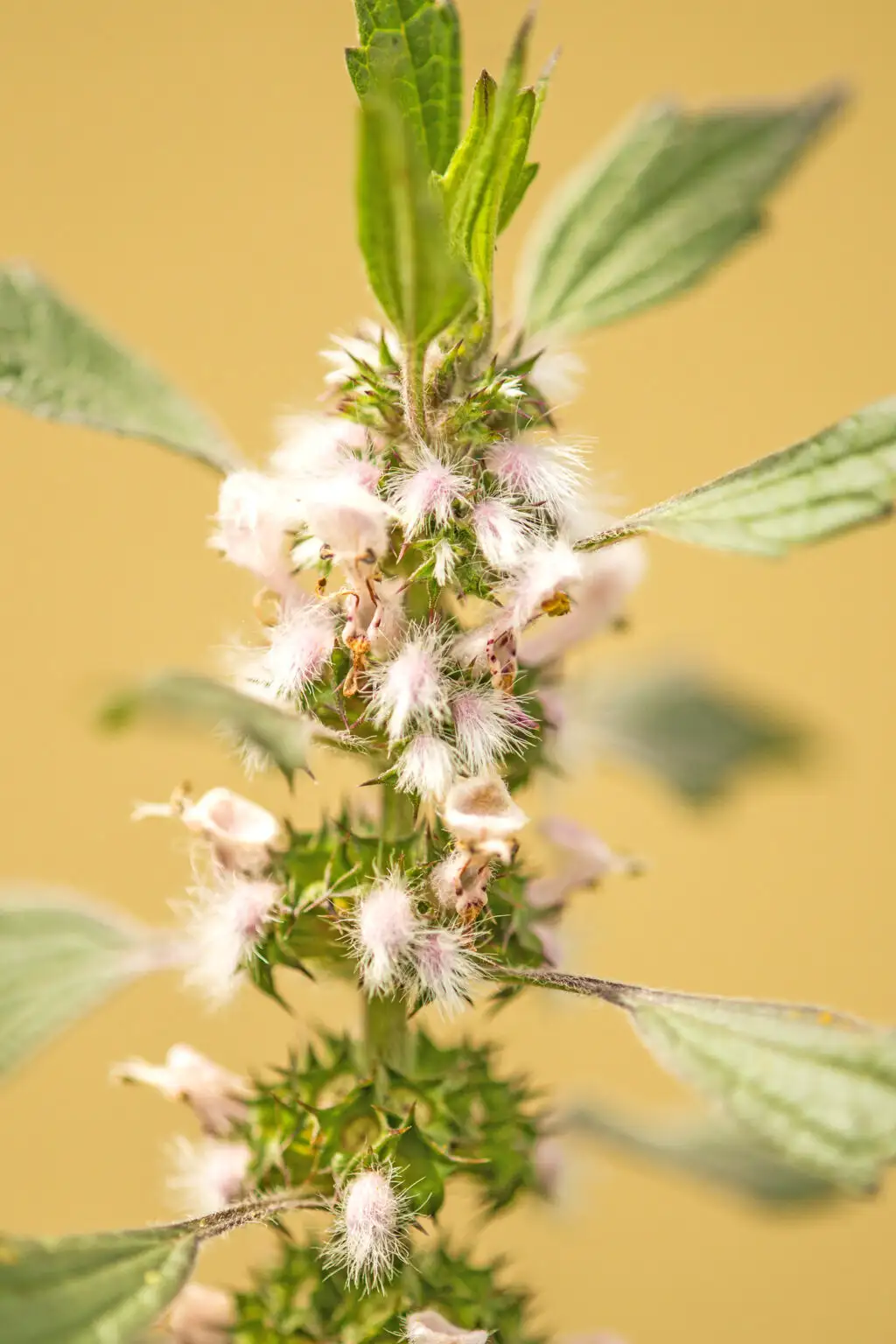Leonurus cardiaca
Latin Name: Leonurus cardiaca
Herb Class/Action: Nervine, cardiotonic, circulatory support tonic
Parts Used: Aerial parts in flowers, leaves
Flavors: Bitter
Energetics: Slightly cooling, drying
Traditional Benefits: Heart support, stress support, mood support, musculoskeletal support, supports women’s cycles
“Like a big hug from mom,” Motherwort greets us as if the love of nature itself could be encompassed into an herb—warm, supportive, calming, and reliable. This cardiovascular supportive nervine helps to support emotional balance, all while aiding and maintaining physical heart health in the face of occasional stress.*
If Mother Nature could wrap you in a warm, firm, soothing hug during times of stress or melancholy, she’d do just that. Instead, she’s given us the flowering herb Motherwort, which is like a weighted blanket for your soul.
Often prepared as tea or consumed in capsule/tincture form, Motherwort’s flowers and leaves have profound effects on the mind and soul—and, subsequently, the physical heart. In the Greek and Roman Empires and Ancient China, Motherwort’s traditional uses include helping to support stress and occasional anxiousness, and aid the cardiovascular system.

A salvation for those of us who need a little help unwinding sometimes, this herbal ally supports us during times where we’re feeling blue. As a bitter member of the mint family, Motherwort is indicated for someone who tends to ‘check out’ when they feel overwhelmed. “The bitter flavor brings us back into our bodies.” – Jim McDonald
Overall, Motherwort, helps one find peace and comfort within the mind, body, and soul. In addition to helping with stress and emotional discomfort, Motherwort may be useful for support with menstrual-related issues—including PMS and hormone balance support. Because it may help move and balance one’s flow, it’s not recommended during pregnancy or while experiencing heaving menstrual bleeding.
Motherwort is sometimes known as Lion’s Heart—as its Latin name comes from the Greek words for
lion (leon) and heart (cardiaca).

